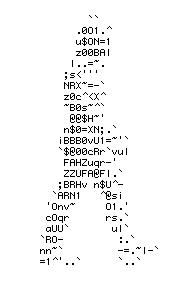Vom Umgang mit Kommentaren - The audience strikes back ;-)
Wie sollen Medien mit LeserInnen-Kommentaren umgehen? Pat Walters hat einige interessante Meinungen und Ansätze diverser Medien bei Poynter.org zusammengetragen:
Jim Brady, Editor der washingtonpost.com :
"The main issues we've had with comments are the same ones other news organizations have experienced: monitoring and tone. That said, I view commenting as an essential part of where online journalism is headed, and news organizations need to heal the existing wounds and not amputate the limb. For us, engaging readers -- through blogs, comments on articles, live discussions, hyperlinked bylines, social networking functions -- is absolutely essential: it builds immense loyalty with readers, it allows communities to form around common interests, it makes readers feel like they're participating and not watching from the outside. Most of that is lost on folks who don't understand the difficulties all Web sites face in attracting and retaining readers. Community is a differentiator."
Und Heather Moore, NYTimes.com Community Editor:
"Unlike traditional Letters to the Editor, reader comments at The Times are not edited and the great majority of them are published. Moderating, like editing, is an art and every moderator's touch is slightly different. But the guidelines we provide are clear: no personal attacks and no vulgarity or profanity of any kind. Offensiveness can sometimes be a matter of interpretation. We aim to lean on the side of good taste and respectfulness. While our moderators move quickly, it's not fast enough for some used to instant gratification. We hope the majority of folks who choose us for their news agree that protecting the conversation is worth it."
Weitere Beispiele wie WallStreet Journal, Slashdot, Open Source gibts bei Poynter: Dealing with Comments: A Few Interesting Approaches (Via: Cyberjournalist.net )
Jim Brady, Editor der washingtonpost.com :
"The main issues we've had with comments are the same ones other news organizations have experienced: monitoring and tone. That said, I view commenting as an essential part of where online journalism is headed, and news organizations need to heal the existing wounds and not amputate the limb. For us, engaging readers -- through blogs, comments on articles, live discussions, hyperlinked bylines, social networking functions -- is absolutely essential: it builds immense loyalty with readers, it allows communities to form around common interests, it makes readers feel like they're participating and not watching from the outside. Most of that is lost on folks who don't understand the difficulties all Web sites face in attracting and retaining readers. Community is a differentiator."
Und Heather Moore, NYTimes.com Community Editor:
"Unlike traditional Letters to the Editor, reader comments at The Times are not edited and the great majority of them are published. Moderating, like editing, is an art and every moderator's touch is slightly different. But the guidelines we provide are clear: no personal attacks and no vulgarity or profanity of any kind. Offensiveness can sometimes be a matter of interpretation. We aim to lean on the side of good taste and respectfulness. While our moderators move quickly, it's not fast enough for some used to instant gratification. We hope the majority of folks who choose us for their news agree that protecting the conversation is worth it."
Weitere Beispiele wie WallStreet Journal, Slashdot, Open Source gibts bei Poynter: Dealing with Comments: A Few Interesting Approaches (Via: Cyberjournalist.net )
Cyberwriter - 8. Jun, 14:38 - citizen journalism
0 Kommentare - Kommentar verfassen - 0 Trackbacks





















Trackback URL:
https://cyberwriter.twoday.net/STORIES/3815489/modTrackback